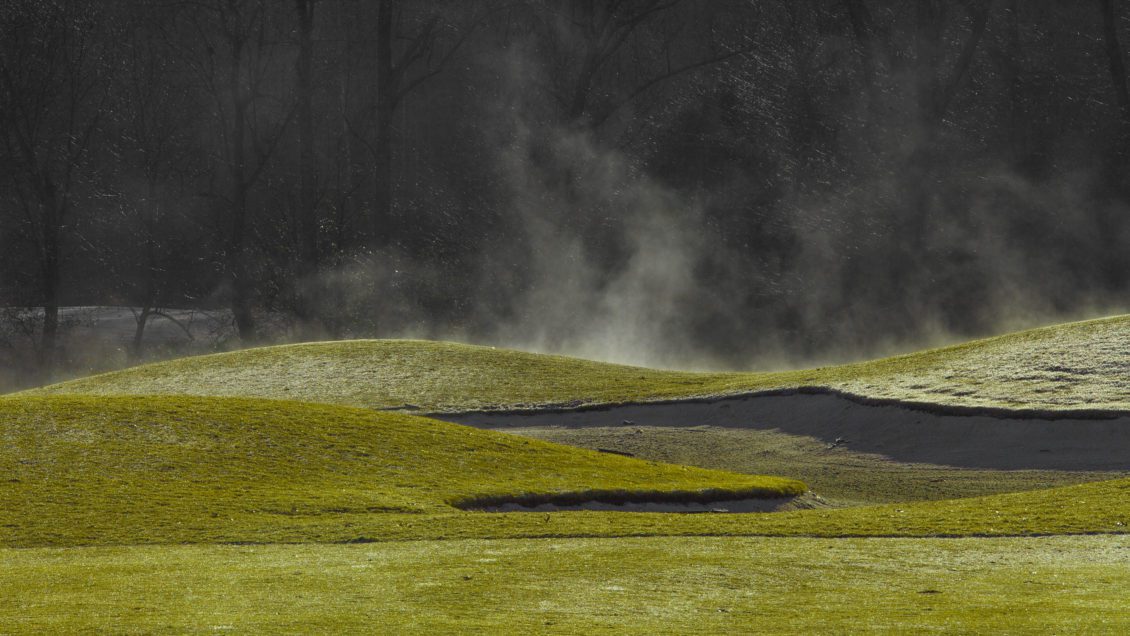Pendleton, S.C. – Turfgrass managers know it takes a lot of work and a little luck to produce that carpet-like football field or perfect golf green.
They also know that planting the best sod raises their chances of success and that sod that’s genetically impure or full of weeds can cause problems and cost money down the line.
But turfgrass managers and homeowners can improve their results, save money and lower risk by purchasing sod that has met the rigorous standards set by the South Carolina Seed Certification Program.
“The South Carolina Seed and Turf Certification program is an important value added resource for the growers in our state,” said Steve Cole, the director of Regulatoy Services at Clemson. “The Clemson Department of Fertilizer Regulation and Certification Services administers the program but we collaborate with several organizations including the South Carolina Department of Agriculture, the South Carolina Crop Improvement Association and Clemson’s Agricultural Research programs to ensure we have a high standard of quality turfgrass and seed available in South Carolina.”
It can be thought of as the “Good Housekeeping Seal of Approval” for seed and sod.
“With certified grass we are certifying to the consumer that the turf they purchase has passed a rigorous set of standards and inspection criteria and that promotes the highest quality. When a consumer buys certified turf, they can rest assured that it is genetically pure, weed free and has been inspected throughout the growing process,” said Sarah Wilbanks, Seed Certification program manager at Clemson.
Before turfgrass can be certified, a team of Clemson experts puts it through its paces.
Before planting, the fields are inspected by Clemson experts to ensure they are properly isolated from other perennial grass. The land is fumigated then left alone for three weeks to allow germination of any unwanted grass or weeds. No animal waste can be applied as fertilizer. The turfgrass fields are then required to be sprayed during the growing season and monitored by Clemson inspectors to make sure they stay pure and weed-free.
“If the turfgrass fails inspection, then it cannot be sold until the problems are corrected. If the grass passes inspection, then we issue a report stating that it is certified and the turfgrass gets a certification tag,” Wilbanks said.
Certified Turfgrass comes in an array of varieties.
Wilbanks says that consumers can request Certified Turfgrass from their landscape professional or installer. They can also order it directly from a list of growers that can be found by visiting: https://www.clemson.edu/public/regulatory/fert-seed/seed/turfgrass-certification/turfgrass-growers.html.
One grower is Super Sod Carolina, a division of Patten Seed Company in Orangeburg.
“We believe turfgrass certification is how we as the turf industry increase the quality standards we have for our customers. Our customers want the best products and quality available, and independent certification at the grower level is how we can prove our commitment to quality,” Super Sod Senior Vice-President Josh Morrow said.
According to Morrow, landscapers comment that turfgrass companies offering certification are typically more reliable and have consistent quality, and golf and sports turf managers are choosing certified products to ensure quality, playability and aesthetics.
“Everyone has been to a Friday night football game and sat in the stands and seen all different types of grass on the field. Golf courses deal with the same issue. These contaminants can look bad and perform worse for recovery from wear and seasonal transitions,” Morrow said.
Morrow said that homeowners also are attracted to consistency and water savings that can result from planting certified turf varieties that often outperform other turfgrasses in the market.
Certified Turfgrass can be thought of as the children or grandchildren of what is called Foundation Turfgrass. Foundation sprigs are the initial transplants from the turfgrass breeder’s original propagating material.
[END]
Get in touch and we will connect you with the author or another expert.
Or email us at news@clemson.edu

